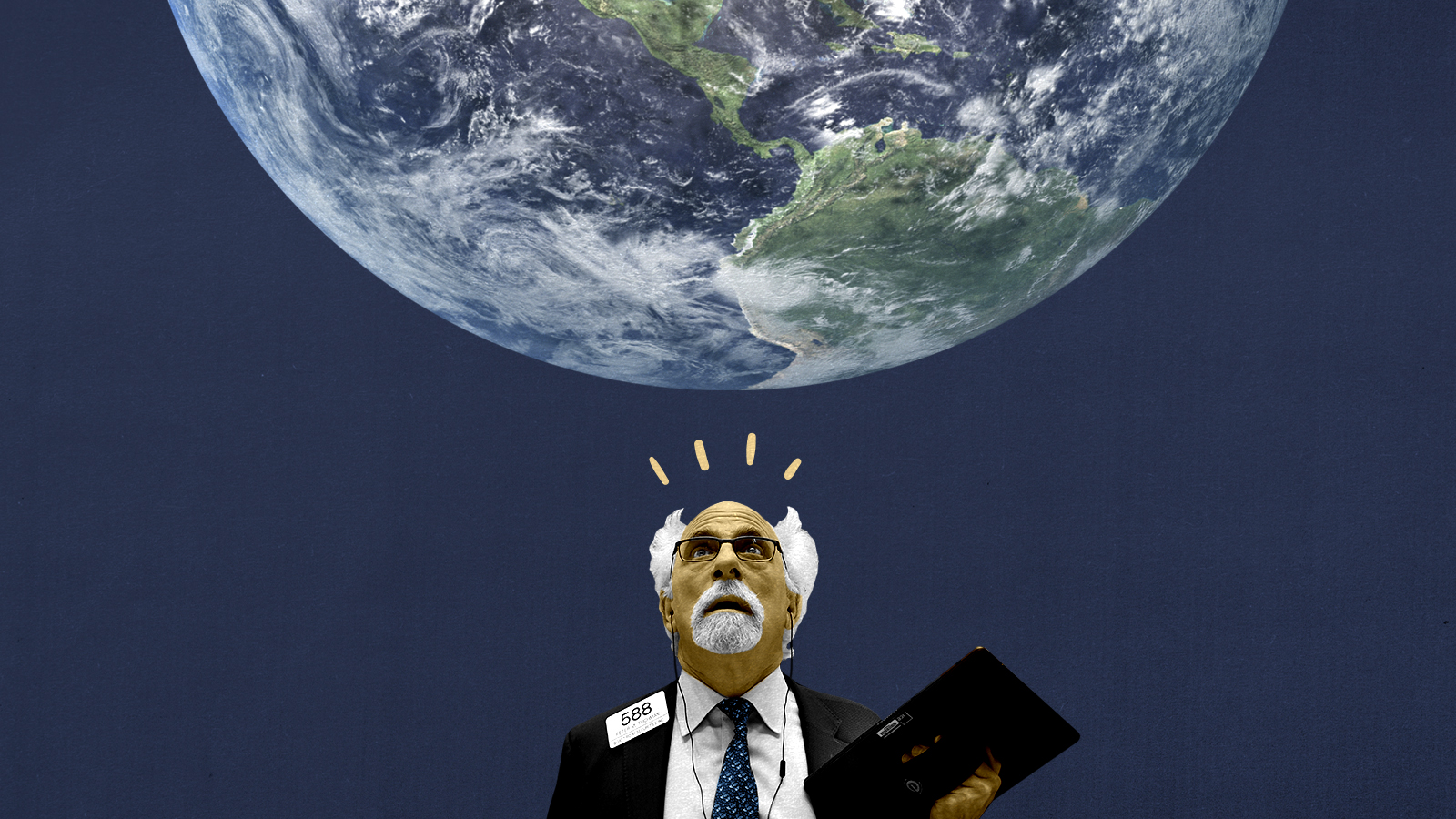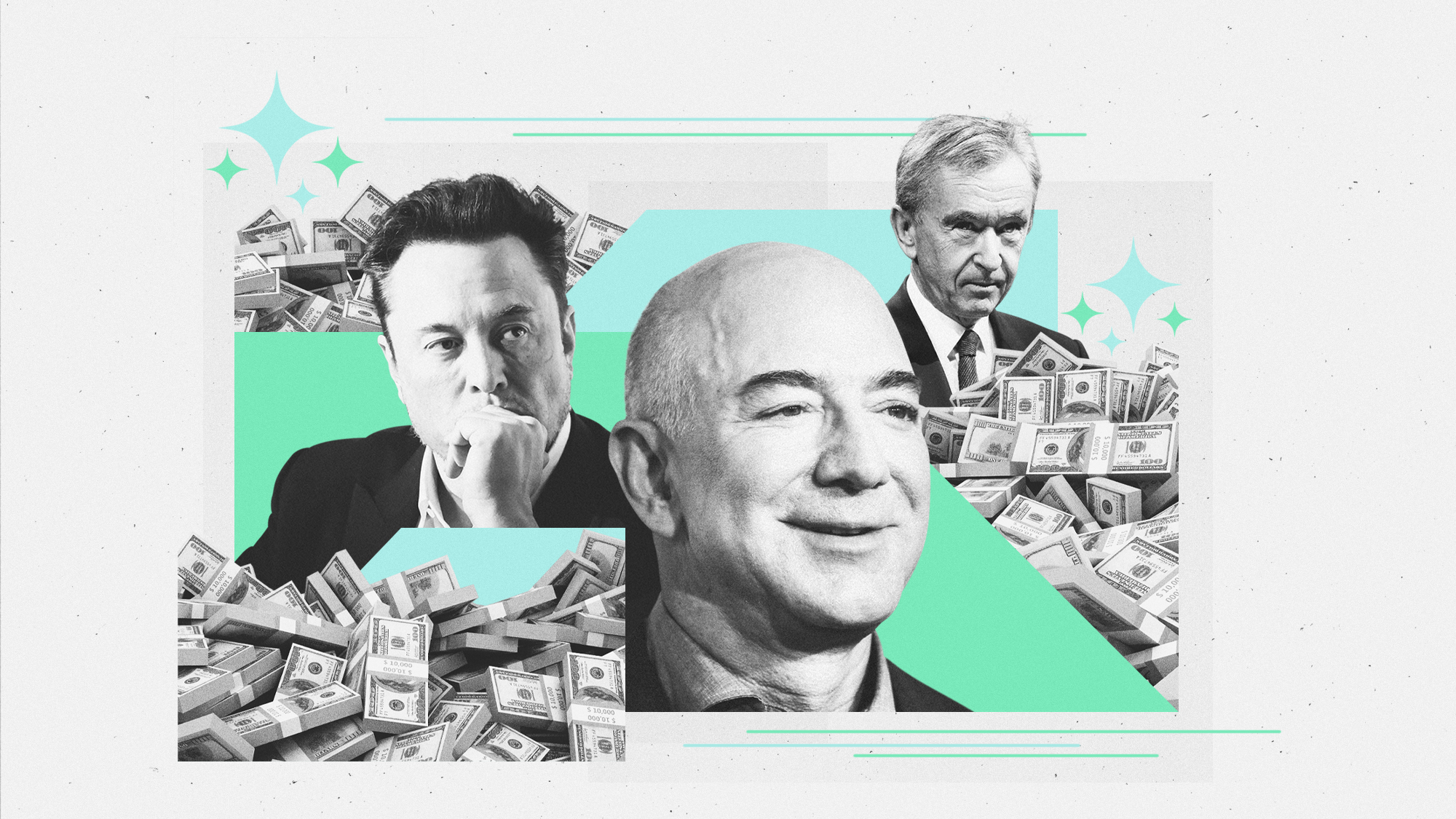Where the global economy is headed in 2023
How does the average person feel about their national economy, and what is the outlook like for the coming year?


A free daily email with the biggest news stories of the day – and the best features from TheWeek.com
You are now subscribed
Your newsletter sign-up was successful
At long last, 2023 has arrived, and with it the feeling of a clean slate following a year of turmoil, particularly among the economies of the world. Economists, pundits, and average people alike are weighing in on some strong forecasts for what the next 365 days may hold for the global markets. Here are some of the biggest questions and most notable predictions:
1. Will there be a recession?
The one question that seems to be weighing on everyone's mind when it comes to the economy: Will there be a global recession in 2023? Many business outlets, including The Economist, Forbes, and Fortune report that it's not a question of if, but when, particularly due to the looming economic crisis in Europe. Forbes mused that the possibility of avoiding a recession was possible, but "highly unlikely," adding that any actions to try and stop a recession would likely just worsen inflation. However, others, including major banking giants like Goldman Sachs, feel that the U.S., in particular, will avoid the economic downturn, with only 35 percent of their analysts thinking there will be a recession — much lower than most other economists. Despite this, it remains clear that most figures of influence in the economic sphere see a recession looming on the horizon in the new year. As Bloomberg noted, "the consensus view is that a recession, albeit mild, will hit both sides of the Atlantic with a high bar for any dovish policy pivot." Perhaps most worryingly of all was the October economic outlook by the International Monetary Fund, which concluded, "The worst is yet to come and for many people, 2023 will feel like a recession."
2. Will inflation get worse?
Besides a possible looming recession, the other economic issue on everyone's mind is rising inflation, and that may not be going away anytime soon. While officials are taking steps to mitigate inflation, the EU is still looking to dust off the wounds of last year. The Associated Press reported that Germany saw inflation rates reach 7.9 percent in 2022 — the highest in that country in 70 years. Things weren't much better in the United States, where despite evidence that relief from high prices is finally arriving, inflation still rose to its highest level in four decades this past summer. But will things improve in 2023? It seems people are a bit pessimistic on that front. An Ipsos poll of 24,000 adults taken in numerous countries, including the U.S., Canada, Ireland, Israel, Malaysia, South Africa, and Turkey, found that 75 percent of those polled felt inflation would be worse in 2023 than in 2022. They're not alone, as experts told Reuters that while inflation may fall by up to half its current level, it will likely be a hard landing as the global economy tries to get back on track.
The Week
Escape your echo chamber. Get the facts behind the news, plus analysis from multiple perspectives.

Sign up for The Week's Free Newsletters
From our morning news briefing to a weekly Good News Newsletter, get the best of The Week delivered directly to your inbox.
From our morning news briefing to a weekly Good News Newsletter, get the best of The Week delivered directly to your inbox.
3. How much will the cost of living increase worldwide?
The cost of living has undoubtedly been increasing for years, and 2022 appears to be no different. But will things change in 2023, or will the average person's everyday costs continue to climb? Well, the respondents in the Ipsos poll certainly seem to think the latter, with 79 percent of people agreeing that prices in their respective countries would keep rising faster than people's incomes. This is in line with 68 percent of respondents who felt unemployment would be higher in 2023 than in 2022. In the United States, there were some signs even last year that costs could keep going up through the new year. Last summer, officials announced that Social Security benefits would need a big adjustment to make up for the anticipated cost-of-living difference, with seniors potentially receiving a pay hike of up to 9 percent. However, as Forbes reported, rising global inflation could mean that these increases could still be short-lived for many people, especially given that rising prices often disproportionately affect seniors. Speaking of inflation — one of the main causes of higher prices — a separate Ipsos poll of 36 countries found that seven in 10 people expected the cost of living to rise in 2023.
4. What is the likelihood of a stock market crash in 2023?
The last major stock market crash preceded the Great Recession in 2008. With the global economy seemingly on the fritz, some analysts believe there is a strong likelihood a similar stock crash could be seen in 2023. Financial prognosticators at JPMorgan Chase predicted that the start of the year could be a dismal period for markets around the world. The banking conglomerate expects the S&P 500 to fall up to 14 percent in the first quarter of 2023 due to a "proverbial snowball" of rising costs, higher unemployment, and an overall downward trend in the economy. Other banks, such as UBS, predicted a still-drastic S&P fall of up to 9 percent. However, there still may be some reasons for optimism. "There doesn't seem to be a lot of people, despite the drawdowns, who are saying, 'Hey, the pain has been awful,'" Lisa Shalett, CIO at Morgan Stanley Wealth Management, told The New York Times. "The reason is, because all things considered, they're still up 50 percent since the start of the pandemic." While the Times noted that 2023 may still end up with one of the most bearish markets of the 2000s, the enthusiasm among investors may still leave some room for improvement.
5. How much more could mortgage rates increase?
Mortgage rates have more than doubled since the beginning of 2022, according to Bankrate, so it may not seem like a stretch to think that rates will continue to climb as the housing crisis continues. The outlet even recommended that it may be better to wait until 2024 to even try and get a loan. However, there may still be some reasons to be optimistic that purchasing a home may start to get cheaper. Bankrate noted that the average interest on a 30-year fixed mortgage has fallen under the 7 percent threshold accrued last fall. Others remain more pessimistic, though, with Forbes reporting that some economists believe the national mortgage rate would likely continue to increase throughout 2023. "While the Fed indicated at this month's meeting that it will consider changes in inflation metrics in its rate setting, it also highlighted that it does not expect to back off its hawkish stance on inflation [until prices drop]," George Ratiu, Realtor.com's director of economic research, told the outlet. Many others, including the Mortgage Bankers Association, told Forbes to expect "significant volatility" in the housing market in the near future.
A free daily email with the biggest news stories of the day – and the best features from TheWeek.com
Justin Klawans has worked as a staff writer at The Week since 2022. He began his career covering local news before joining Newsweek as a breaking news reporter, where he wrote about politics, national and global affairs, business, crime, sports, film, television and other news. Justin has also freelanced for outlets including Collider and United Press International.
-
 Health insurance: Premiums soar as ACA subsidies end
Health insurance: Premiums soar as ACA subsidies endFeature 1.4 million people have dropped coverage
-
 Anthropic: AI triggers the ‘SaaSpocalypse’
Anthropic: AI triggers the ‘SaaSpocalypse’Feature A grim reaper for software services?
-
 NIH director Bhattacharya tapped as acting CDC head
NIH director Bhattacharya tapped as acting CDC headSpeed Read Jay Bhattacharya, a critic of the CDC’s Covid-19 response, will now lead the Centers for Disease Control and Prevention
-
 The rise of the world's first trillionaire
The rise of the world's first trillionairein depth When will it happen, and who will it be?
-
 The surge in child labor
The surge in child laborThe Explainer A growing number of companies in the U.S. are illegally hiring children — and putting them to work in dangerous jobs.
-
 Your new car may be a 'privacy nightmare on wheels'
Your new car may be a 'privacy nightmare on wheels'Speed Read New cars come with helpful bells and whistles, but also cameras, microphones and sensors that are reporting on everything you do
-
 Empty office buildings are blank slates to improve cities
Empty office buildings are blank slates to improve citiesSpeed Read The pandemic kept people home and now city buildings are vacant
-
 Why auto workers are on the brink of striking
Why auto workers are on the brink of strikingSpeed Read As the industry transitions to EVs, union workers ask for a pay raise and a shorter workweek
-
 American wealth disparity by the numbers
American wealth disparity by the numbersThe Explainer The gap between rich and poor continues to widen in the United States
-
 Cheap cars get run off the road
Cheap cars get run off the roadSpeed Read Why automakers are shedding small cars for SUVs, and what that means for buyers
-
 Vietnamese EV maker VinFast wows with staggering Nasdaq debut
Vietnamese EV maker VinFast wows with staggering Nasdaq debutSpeed Read Can the company keep up the pace, or is it running out of gas?
